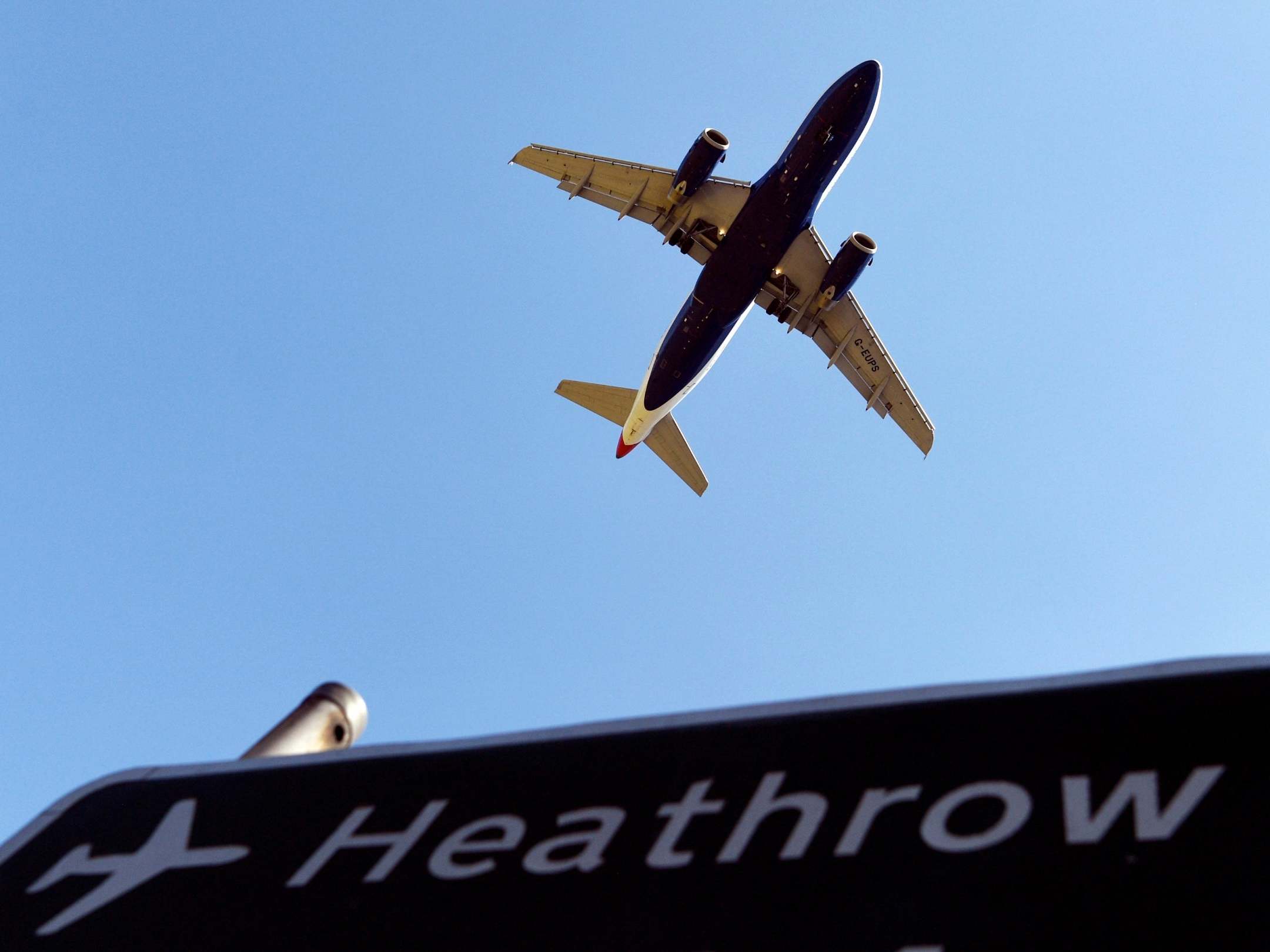The Heathrow runway ruling is a step in the right direction to tackle the climate crisis
Editorial: The change in political and public opinion over the issue has proceeded at a surprising pace – yet it is far from complete

After years of planning, argument and protest, the expansion of Heathrow airport has at last been halted. That would be a hugely significant story in any circumstances. It is in fact a historic moment and, it is to be hoped, a turning point in the struggle to save the planet.
For the first time a major infrastructure project, backed by the private sector and supported by successive governments, has been not merely delayed but stopped because of its detrimental impact on carbon dioxide emissions. That is why it is impossible to overstate the importance of the ruling.
Never before has the environment prevailed over economics. Yet the legal position is perfectly clear, and the addition of 260,000 flights a year at Heathrow has rightly been judged to be incompatible with the UK’s obligations under the Paris climate change agreement. It brings into sharp relief the kind of tough, painful choices that will be required of every country and every inhabitant of Earth if the planet is to be saved as a habitable environment for generations to come. It is no good having the best air transport in the world if there is no world left to visit.
Change is in the air, so to speak. The government has decided not to appeal against the judgment, although the private sector owners of Heathrow airport seem determined to take their case to the Supreme Court. Yet without government backing and enthusiasm, it seems unlikely that the developers will win and, barring some unimagined technological breakthrough, Heathrow’s third runway will probably never be built. Boris Johnson will never have to keep his promise to lie in front of the bulldozers.
The campaigners have won, after a struggle that took years and sometimes looked hopeless. For a long time the expansion at Heathrow seemed inevitable, delayed only by endless studies and political manoeuvrings. Sooner or later, it was widely assumed, opposition to the third runway would be overcome.
It was Friends of the Earth, representing an alliance of green groups, which took the authorities to court and secured this famous victory. They were honourably assisted by the mayor of London, Sadiq Khan, who has won a handy victory as the capital’s mayoral election draws near. Mr Khan is to be commended for putting the health of Londoners ahead of the undoubted economic benefits of what amounts to a new airport the size of Gatwick being built at Heathrow.
The public increasingly accepts the science of climate change. The deniers are being steadily side-lined (though they have a powerful ally still in the White House). Political leaders are also coming to see the climate emergency as something that demands action. The Green Party always did, but now the Labour Party, with its Green New Deal, has turned to radical answers to this urgent problem. A Conservative government, elected with the kind of parliamentary majority that allows them pretty much to do things as they want, is dropping the Heathrow expansion scheme. Not only that, but these Conservatives have legislated to make the UK carbon neutral by 2050 as a matter of law, are spending billions on new railways and bus services, and slapped a moratorium on fracking. They did so, at least in part, because public opinion demanded them.
As the Heathrow judgment illustrates and symbolises, the greening of politics and public opinion has proceeded at a surprising pace. Yet it is of course far from complete. Leading figures such as David Attenborough and Greta Thunberg have persuaded the great majority of the public that climate change is real. People have altered their behaviour – recycling rubbish, avoiding single-use plastics, adopting vegetarian and vegan lifestyles, and showing more interest in electric cars. Many will welcome the Heathrow decision.
Yet there remains a gap between public awareness and a more radical change in individual habits – flying less, for example. But the direction of travel in the mood of the nation is clear and encouraging. The first country in the world to halt the seemingly inexorable rise in air travel will have something to be proud of at November’s COP26 climate conference in Glasgow.
Join our commenting forum
Join thought-provoking conversations, follow other Independent readers and see their replies
Comments